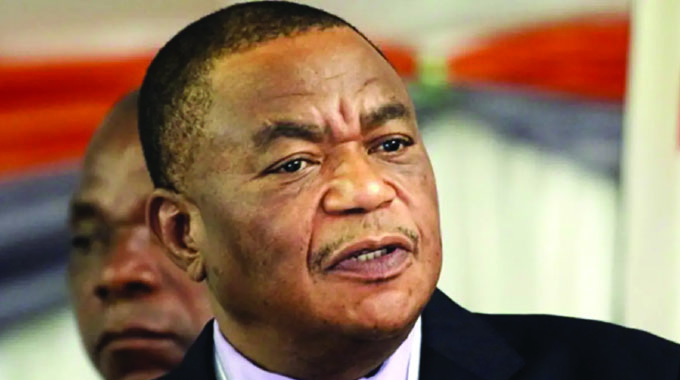Kamungoma massacre survivors relive horror

Wallace Ruzvidzo recently in Gutu
For the more than 30 survivors of one of the worst massacres of civilians inside Zimbabwe by Rhodesian soldiers during the liberation struggle, the unveiling of the Kamungoma Liberation War Shrine by President Mnangagwa on Thursday not only showed the Second Republic’s humane nature, but brought back memories filled with emotion.
Those who survived the massacre did so by a whisker, with many of them either losing limbs or going as far as drinking human blood for survival in the aftermath.
One of the survivors, Mr Hondo Svondo, now in his late 40s, was found suckling on his dead mother’s breast, not knowing that she had died. Such are the touching tales of the survivors of the May 14, 1978, massacre.
In interviews with The Herald after the unveiling of the liberation war shrine, the survivors said it was only by God’s grace that they had survived to tell stories about the events that transpired on the dark day.
Mr Svondo said he had no recollection as he was just but a baby, but hearing of the story brings so much emotion.
“I was too young to comprehend, but kungozvinzwa (hearing it) when I was a bit older brought too many emotions,” he said.
Mr Benson Dete was 15 when the massacre happened. While chronicling the ordeal, he said it was something that he had not yet recovered from mentally.
“I was injured here when I was only 15 years old and I have not really recovered in my head from it but at least now that President Mnangagwa has done such a great thing as this, our children will have that appreciation of what really transpired.
“We are very happy for the recognition because now even when we tell our children or grandchildren we are telling them things with evidence and substance,” he said.
While recalling events on the fateful day, Mr Petros Makwanya said all he had to say was thank you to the President.
He said the issue was too sensitive for him to delve into deeply, but he was happy about the due recognition from the Second Republic.
“Today I am very happy even in my injured state because we have been duly recognised. I have gunshot wounds but today I am happy because of this. We almost lost our lives here and to this day I do not delve into the issue too much because for me it is very sensitive,” he said.
Mr Cleopas Musungwa, a relative of one of the victims who died that day said he had not recovered from the loss to this day as what had happened was very tragic.
“This is painful when I think about it because the blood that was shed here is that of our relatives.
“It is something that gravely affected us, and to this day we have never recovered from this. As for me I wasn’t there but I lost a dear relative, something I have not recovered from,” he said.
In his remarks, President Mnangagwa said the Second Republic was alive to the physical, emotional and mental effects of the callous massacre.
“The May 14 1978, remains a dark day in our country’s history as 104 innocent and unarmed civilians, as well as one guerrilla fighter, were killed. On that fateful day, the liberation war fighters as ‘the fish’ and the people ‘as water’, were at a pungwe drumming up the support and solidarity of communities as well as instilling hope for the imminent freedom, independence and liberation from colonial oppression.
“The indiscriminate attack saw teenagers and women, some being breastfeeding mothers, lose their precious lives. The deceased were buried in shallow mass graves. Many survivors of the callous attack still carry with them the trauma, memories, wounds and pain,” he said.
The President said it was thus imperative that Zimbabwe’s sovereignty is guarded jealously and its rich history preserved.
“These are the experiences that made us a free people and nation, a sovereign state in the comity of nations. We will never forget. Present generations are challenged to bring forward their knowledge and expertise, in whatever form, towards advancing our national development agenda right from the individual level.
“We have a responsibility to protect our country and the resources given to us by Almighty God. As it was in the pungwes of yesteryear, our social gatherings and media platforms must preach hope, unity and the agenda of production and productivity. No one will come from elsewhere to build our country. Ngatidadei nenyika yekwedu. Ngatikoshesei nyika yekwedu,” he said.









Comments